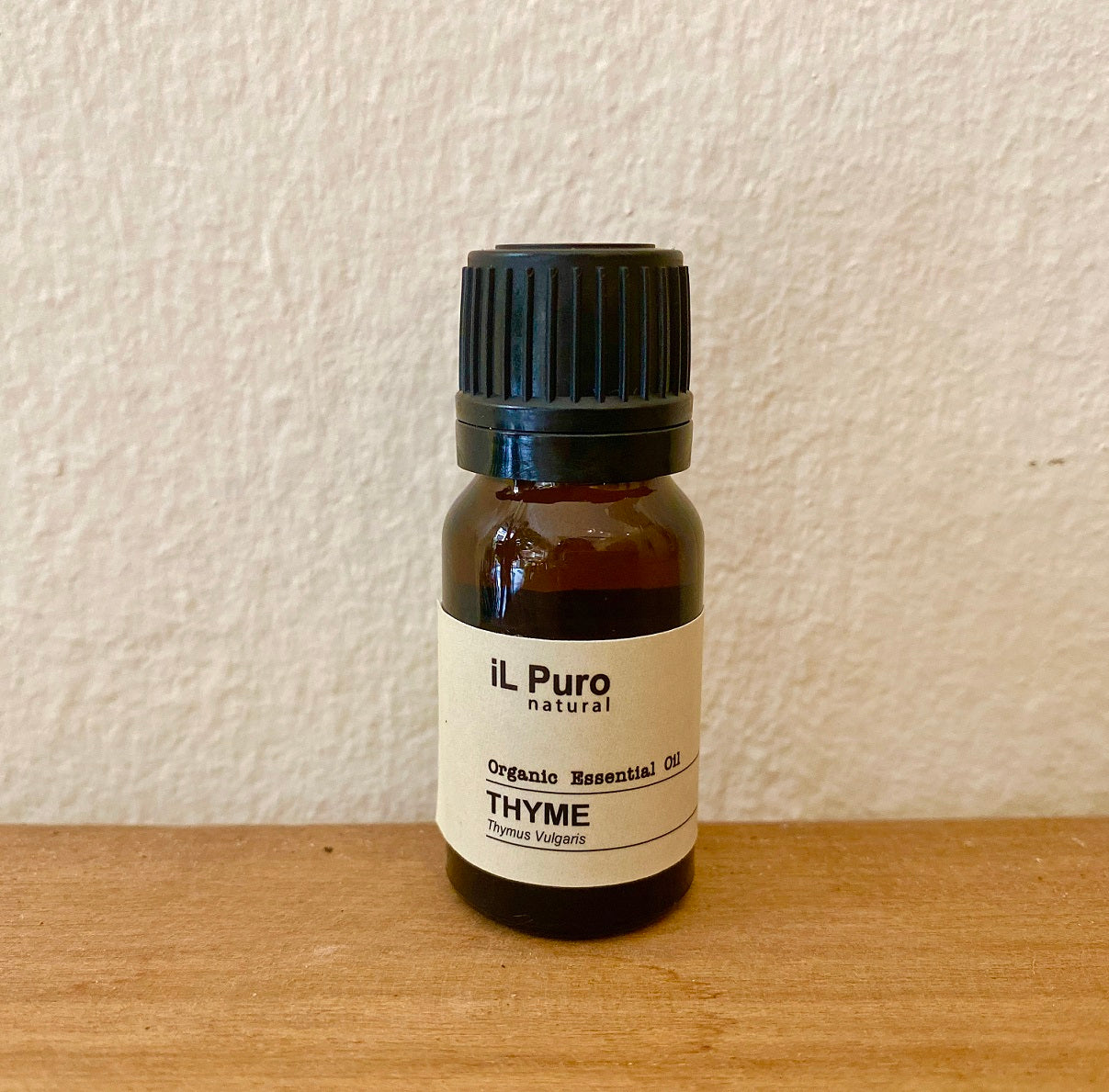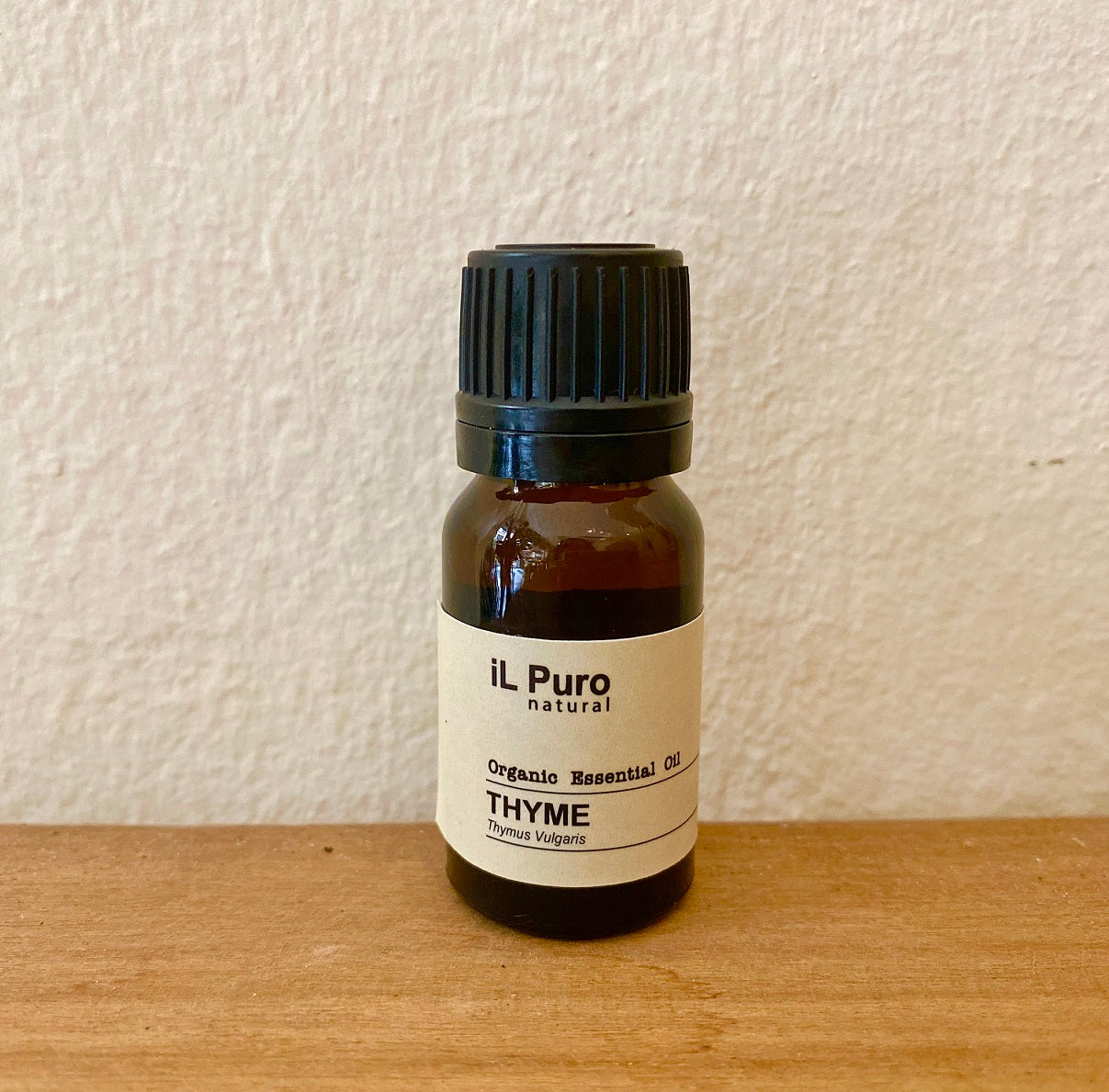iL Puro Natural
Couldn't load pickup availability
Thymus vulgaris (organic)
Origin: Morocco
Herbal/Folk Tradition
One of the earliest medicinal plants employed throughout the Mediterranean region, well known to both Hippocrates and Dioscorides. It was used by the ancient Egyptians in the embalming process, and by the ancient Greeks to fumigate against infectious illness; the name derives from the Greek thymos meaning 'to perfume'. It is also a long-established culinary herb, especially used for the preservation of meat.
It has a wide range of uses, though in Wesrern herbal medicine its main areas of application are respiratory problems, digestive complaints and the prevention and treatment of infection. In the British Herbal Phamacopoeia it is indicated for dyspepsia, chronic gastritis, bronchitis, pertussis, asthma, children's diarrhoea, laryngitis, tonsillitis and enuresis in children.
Aromatherapy/Home Use
Skin care: Abscess, acne, bruises, burns, cuts, dermatitis, eczema, insect bites, lice, gum infections, oily skin, scabies.
Circulation muscles and joints: Arthritis, cellulitis, gout, muscular aches and pains, obesity, oedema, poor circulation, rheumatism, sprains, sports injuries.
Respiratory system: Asthma, bronchitis, catarrh, coughs, laryngitis, sinusitis, sore throat, tonsillitis.
Digestive system: Diarrhoea, dyspepsia, flatulence.
Genito-urinary system: Cystitis, urethritis.
Immune system: Chills, colds, flu, infectious diseases.
Nervous system: Headaches, insomnia, nervous debility and stress-related complaints - 'helps to revive and strengthen both body and mind'.
Materials
Materials
Dimensions
Dimensions
Care information
Care information


